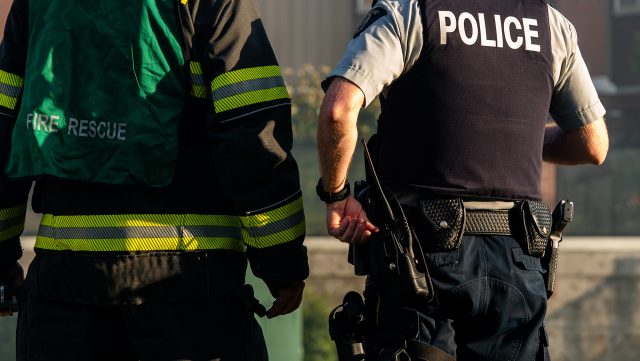
Do Police and Firefighters Die Young?
Alicia H. Munnell is a columnist for MarketWatch and senior advisor of the Center for Retirement Research at Boston College.
Life expectancy of those who survive to 60 looks very similar to that for general employees.
At a recent meeting, a colleague asserted – with great assurance – that we need very different pension plans for different types of workers, because firefighters die two years after they retire while teachers live for 20 years. I was intrigued because, although we have not done much work on police and firefighter pension plans, such life expectancy data would certainly help with any future analysis. Moreover, I had asked for such data for Massachusetts public employees as chair of an earlier commission, and was told that life expectancy data by occupation was not available. So where did this new information come from?
The only possible source seemed to be the actuarial reports for pension plans for different types of public employees, which include assumptions about mortality rates for different types of workers. Of course, first responders are exposed to much greater risks at work than office workers or teachers, which has implications for disability programs. But my question was, if they are not disabled or killed on the job, do police and firefighters have longer or shorter life expectancies than other public sector workers. In other words, if a policeman or firefighter survived to, say, age 60 would they be expected to have a longer or shorter life expectancy from that point on?
It was not clear what to expect. Being a policeman or firefighter is clearly stressful and physically demanding, which could take its toll on the body. On the other hand, engaging in physically demanding activities could keep these public employees more fit than those who have sedentary office jobs. Another factor to keep in mind is that most police and firefighters are male and most teachers are female; in the overall U.S. population, average life expectancy for males at age 60 is three years shorter, based on data from the Social Security Administration.
We had on hand actuarial reports for police and fire and other groups of public employees for Ohio, Nevada, South Carolina, New York, California, and the District of Columbia and for Dallas police and fire. All of these plans use a version of the RP 2000 mortality tables created by the Society of Actuaries. The plans differ slightly in how they adjust these rates for males and females and for different types of employees. We used the mortality assumptions given in the actuarial reports to construct life expectancies for different employee groups.
The results show very little difference at age 60 in the life expectancy of police and fire as compared with other public employees. The average life expectancy at age 60 for police and firefighters was 24 years for men and 26 years for women. For non-police and fire, the comparable figures were 25 years for men and 27 years for women – just one year longer! And the pattern was quite consistent across states and localities.
My assumption is that if experience proved different than these life expectancy assumptions, the actuaries would be forced to change their predictions in order to more accurately value the plans. So until that happens, I am going with the conclusion that the life expectancy of different groups of public employees is virtually identical. And, while reasons may exist to design the plans differently for police and firefighters, life expectancy is not one of those reasons.






